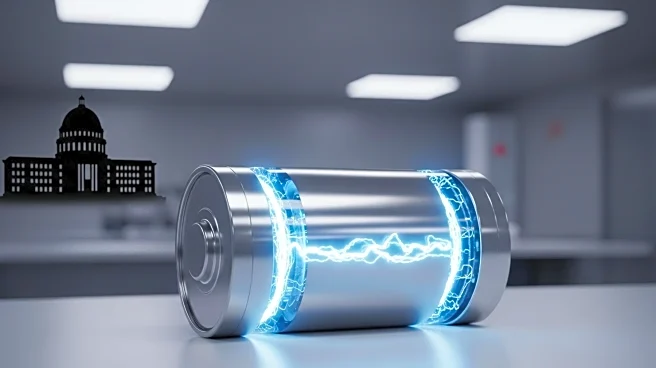What's Happening?
The US Government is negotiating for up to a 10% equity stake in Lithium Americas, linked to a $2.26 billion loan from the US Department of Energy for the Thacker Pass lithium project. This move is part of the Trump administration's strategy to bolster industries crucial for national security, similar to previous interventions with companies like Intel and MP Materials. The Thacker Pass mine, located in Nevada, is expected to become the largest lithium source in the Western Hemisphere by 2028, aiming to reduce US dependency on Chinese lithium. Lithium is essential for rechargeable batteries used in consumer electronics, electric vehicles, and energy storage systems. The US currently produces less than 5,000 tonnes of lithium annually, while Thacker Pass aims to produce 40,000 tonnes in its initial phase.
Why It's Important?
The US Government's involvement in the Thacker Pass lithium project underscores the strategic importance of securing domestic lithium supplies, crucial for the growing electric vehicle and renewable energy sectors. This initiative could significantly reduce reliance on foreign lithium, particularly from China, enhancing national security and supporting the US's clean energy goals. The project also represents a substantial economic opportunity, potentially boosting local economies and creating jobs. However, the government's stake could lead to increased scrutiny and regulatory oversight, impacting the project's operations and profitability.
What's Next?
The negotiations may lead to changes in the project's control and operations, with potential implications for stakeholders like General Motors, which has invested heavily in the mine. The US Government's involvement could also influence future policy decisions regarding domestic mineral production and energy security. As the project progresses, stakeholders will need to navigate the complexities of government involvement and market dynamics, particularly concerning lithium prices and global supply chains.
Beyond the Headlines
The government's stake in Thacker Pass could set a precedent for future interventions in critical mineral projects, reflecting broader geopolitical strategies to counter China's influence in the global supply chain. This move may also spark discussions on the ethical and environmental implications of large-scale mining projects, particularly concerning land use and community impacts.









